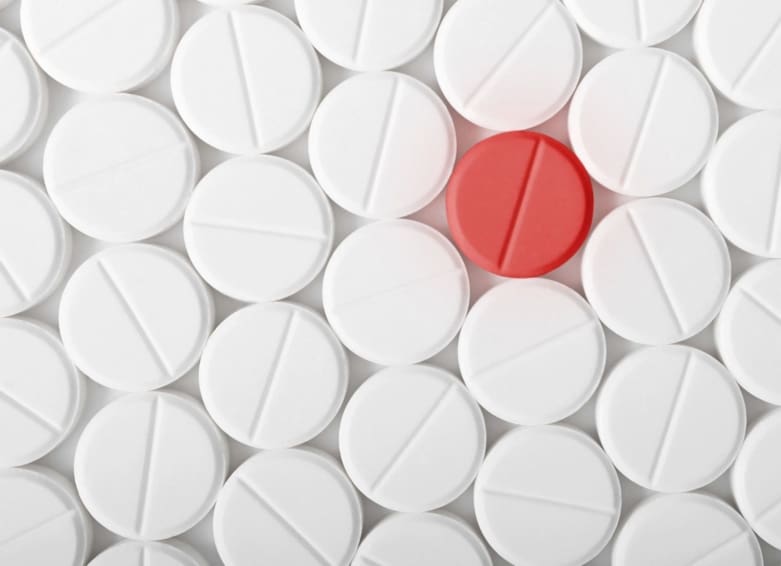
Oral diabetes medicines are medicines that you take by mouth to help control your blood sugar level. They are designed to help people whose bodies still produce some insulin, but not enough insulin.
What medicines could my doctor prescribe?
Many categories of diabetes medicine are available in pill form: metformin (a biguanide), sulfonylureas, thiazolidinediones, meglitinides, dopamine-2 agonists, alpha-glucosidase inhibitors, sodium-glucose transporter 2 (SGLT2), dipeptidyl peptidase-4 (DPP-4) inhibitors, and bile acid sequestrants. Each medicine has good points and bad points. Your doctor will decide which medicine is right for you.
Path to better health
No matter which oral medication your doctor prescribes, you should combine it with a healthier lifestyle. Diet and exercise can do much to improve blood sugar levels.
Biguanide (Metformin)
Metformin is a type of biguanide and it is currently the only biguanide available in the United States. It is often the first oral medicine prescribed for someone newly diagnosed with diabetes. It has the advantage of not causing low blood sugar. Metformin does not cause your pancreas to make insulin, but it helps your body use insulin better. Metformin can cause side effects such as nausea or diarrhea in some people. Your doctor may prescribe metformin in combination with another oral diabetes medicine.
Sulfonylureas
These medicines help your pancreas make insulin. They are inexpensive and have few side effects. There are 3 types of sulfonylureas: glipizide, glimepiride, and glyburide. Side effects may include weight gain and low level of sodium in the blood. Sulfonylureas can be taken alone or with metformin, pioglitazone (a thiazolidinedione), or insulin. If you’re allergic to sulfa, you can’t take a sulfonylurea.
Thiazolidinediones
This class of medicines includes rosiglitazone and pioglitazone. These medicines help your body respond better to insulin. Rosiglitazone and pioglitazone can be used alone or in combination with other diabetes medicines. Side effects may include weight gain, fluid retention, and an increase in LDL (“bad”) cholesterol. People taking rosiglitazone and pioglitazone also need periodic liver tests.
Meglitinides
There are two medicines in this group: repaglinide and nateglinide. Both of these lower your blood glucose by prompting the pancreas to release more insulin. These drugs work quickly and do not stay in your system long. So they are a good option if your meal schedule varies or is unpredictable. They also cause less weight gain than other oral diabetes medicines.
Alpha-glucosidase inhibitors
Alpha-glucosidase inhibitors help control blood sugar levels by preventing the digestion of carbohydrates. Carbohydrates include starchy foods like potatoes and corn. They also include most grains (bread, rice, crackers, cereal) and sugary sweets. The two medicines in this group are acarbose and miglitol. These medicines may cause bloating, nausea, diarrhea, and flatulence (gas).
Sodium-glucose transporter 2 (SGLT2)
A newer class of diabetes medication, SGLT2, includes three medicines: canagliflozin, dapagliflozin, and empagliflozin. These drugs remove extra sugar from your body by sending the sugar out through your kidneys into your urine. They also cause your body to be more sensitive to insulin. The most common side effects caused by SGLT2 are vaginal yeast infections and urinary tract infections.
Dipeptidyl peptidase-4 (DPP-4) inhibitors
There are four medicines in this class of drugs. They are sitagliptin, saxagliptin, linagliptin, and alogliptin. DPP-4 inhibitors help your pancreas release more insulin after you eat. These medicines also tell your liver to release less glucose. Some side effects from taking DPP-4 inhibitors may include nausea and diarrhea.
Bile acid sequestrants
This class of drugs pulls double duty. The medicine in this class, colesevelam, lowers cholesterol and reduces blood sugar levels. So it could be a good choice if you have diabetes and high cholesterol levels. And because these drugs are not absorbed in the blood stream, they may be the best choice for someone who also has liver problems and cannot take some of the other diabetes medicines. Side effects from bile acid sequestrants can include constipation and flatulence (gas).
Things to consider
Managing your blood sugar level is critical to your overall health. Often the focus is on keeping blood sugar levels low. But if they are too low, it can put you at risk, too. Talk to you doctor if you are starting a new exercise program or starting a new diet. He or she may need to adjust your medicine.
Questions for your doctor
- Do I need medicine to control my diabetes?
- What type of medicine would work best to control my blood sugar level?
- When should I take my diabetes medicine?
- What should I do if I miss a dose?
- What side effects might I have?
- Why isn’t my medicine working to lower my blood sugar?
Resources
![]()
Copyright © American Academy of Family Physicians
This information provides a general overview and may not apply to everyone. Talk to your family doctor to find out if this information applies to you and to get more information on this subject.







